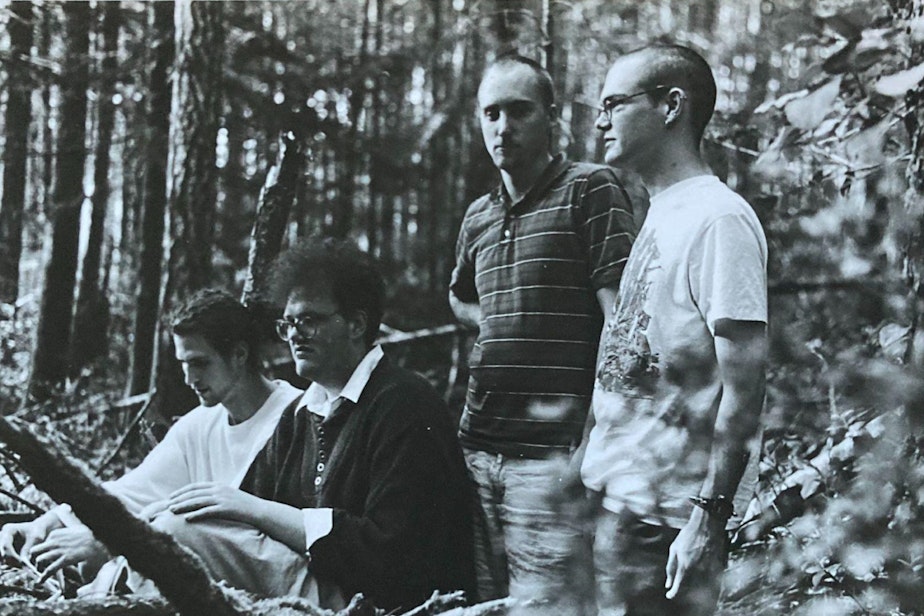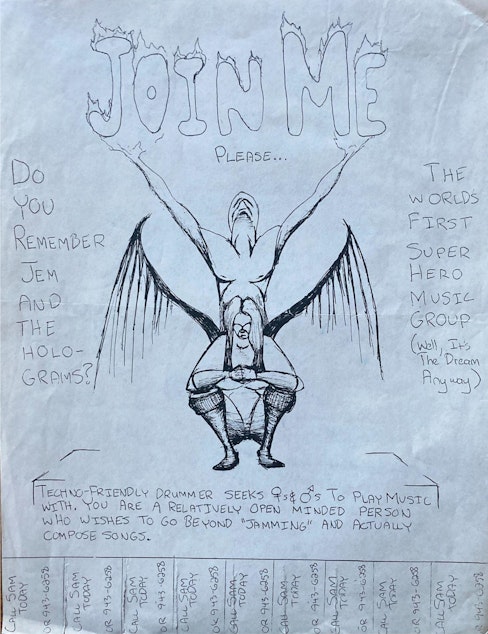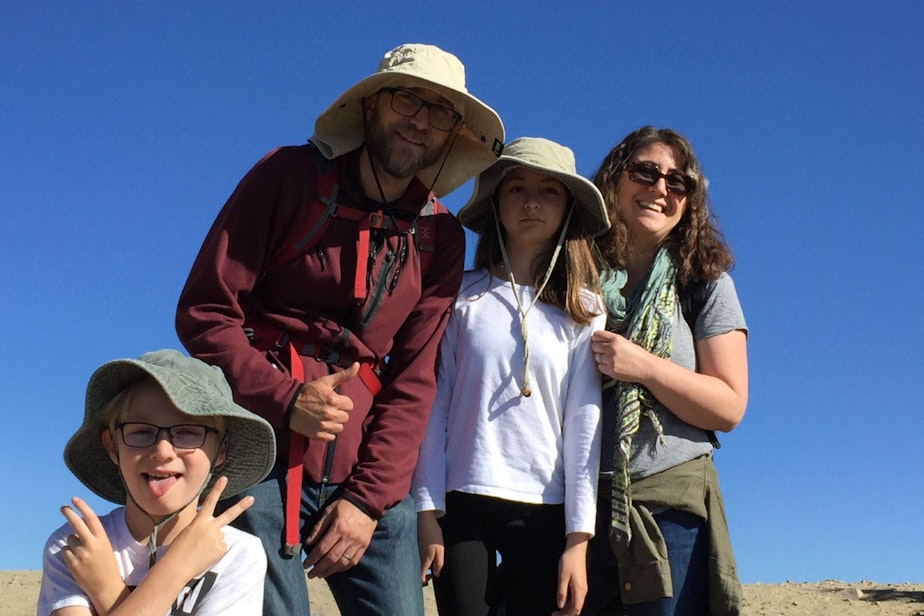'Music is medicine': How my dad’s relationship with music evolved with him

Music has always been important to Sam Jansons. When he was 16, he heard the drums in the Led Zeppelin song "Kashmir" and decided he wanted to play. Since then, he’s expanded to playing the guitar, writing songs, and even messing around with his daughter's piano a bit.
For Jansons, music is an important emotional outlet and part of his social life. RadioActive’s Josie Jansons has this story about her dad.
[RadioActive Youth Media is KUOW's radio journalism and audio storytelling program for young people. This story was entirely youth-produced, from the writing to the audio editing.]
W
hen my dad was 16, about the age I am now, he fell in love with drums. For years, he practiced playing on a plush chair with two-dollar drumsticks.
"And then, for my 18th birthday, my friends bought me a really cheap drum kit, which was a really great gift," my dad said.
But it wasn’t until he was 22 years old that he started playing in bands.
Sponsored
"I made a flyer, like a lot of drummers did," my dad said. "And it had the little cut out things at the bottom so people could call me. I even have a copy of that flyer still."
His flyer led to a phone call, which led to him meeting a bunch of other musicians.
"And some of those people I'm still playing with now, almost 25 years later," he said.

My dad has been in multiple bands since then, some of which have fallen apart. But he still plays with quite a few of his ex-bandmates. He’s kept up with music even while working overtime hours for his job as a mail carrier.
Sponsored
“I don’t sleep as much as I should," he said. "So when I start rehearsal, it’s frequently 8:30 or 9 in the evening. And I start work at 7 a.m."
But what makes music worth missing out on sleep?
“I think music is medicine, he said. "I’ve used music to deal with anger and sadness ever since I was a teenager. First as someone who listened to it — I always had headphones on. I always had music going through my ears. And drums were great, because if I was feeling angry, it's a way to play those emotions out without hurting anyone or causing any problems. And if I'm feeling sad, it's a good way to make my mood a little bit better because it's physical."
About a year before the pandemic started, my dad's mom died. And during the pandemic, his aunt and uncle passed away from Covid-19.
“I was dealing with a lot of sad feelings, and drumming is okay for sad feelings," he said. "Playing guitar and singing is also a good kind of medicine to deal with that kind of sadness.”
Sponsored

When quarantine started, my dad could no longer play the drums in his band. He started playing a lot of guitar, writing songs, and playing piano — all on his own. His musical journey continued to evolve with him through the pandemic.
He hopes that everyone gets to play an instrument at least once in their life.
“You don’t have to like it," he said. "And I hope that people who play an instrument never really stop, and keep doing it for fun and socializing, because some of your greatest friendships are going to happen when you get in a room and have a conversation by singing or playing songs together.”
This story was produced in a RadioActive Youth Media one-week Intro to Radio Storytelling workshop for high school-age youth. Production assistance by Troy Landrum Jr. and Jared Lam. Prepared for the web by Kelsey Kupferer.



